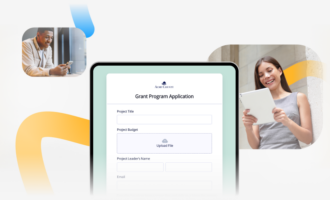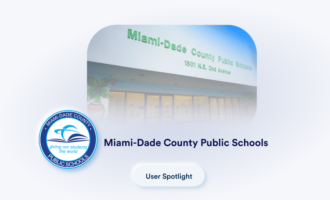How parent involvement enhances classroom community
- Improving student and parent communication
- Create a parent-teacher peer group
- Involve parents in field trips
- Parent mentor programs create community
- Get to know parents personally
Parents have strong opinions about the education of their children, so teachers are first in line for their feedback. The perspectives of parents, however, have an important role to play in helping all students succeed. Here’s how teachers can improve communication with parents by incorporating feedback into field trips, community events, and peer mentorships.
Improving student and parent communication
Every teacher who has received a frantic email or call from a parent knows how stressful that is. In addition to being time-consuming and anxiety-inducing, such erratic communication makes it hard to remember who said what and when.
It’s well worth the effort to create a system for soliciting and receiving parent feedback. This enables you to organize feedback into dedicated files for each parent, so you can look back on what you discussed.
According to Common Sense Education, there are a number of apps designed to offer “instant, practical, and regular communication” between parents, teachers, and students. One of these digital tools is Classting, a flexible, social-media inspired app. Teachers can post announcements, homework and classroom activities, and communicate directly with parents. Another app, called Parent Square, helps parents communicate with school staff.
Create a parent-teacher peer group
Creating a dedicated parent-teacher group is a great way to get parents actively involved in their children’s education. These groups give parents a platform to share their concerns with teachers and other parents.
Asking the group for their feedback about classroom activities, school programs, school field trips, and events promotes open communication and understanding between parents and school staff, explains teacher Eva du Monteil.
Hosting parent-teacher workshops to discuss homework, tests, and study skills gives parents a greater role in their children’s learning. Parents have valuable insights on which strategies work well for their children and how they can support them outside of the classroom.

Involve parents in field trips
Parent-teacher organizations often support, or even sponsor, student field trips. The process of organizing meaningful field trips is an opportunity for parents and teachers to work together. Parents are certain to have suggestions on field trip destinations, such as touring a manufacturing plant for a science class, that can enrich learning.
Parents can provide useful feedback before and after the field trip. Ask parents who chaperoned what worked about the trip and which areas could be improved. “Gathering feedback might consist simply of asking chaperones, parents of children in the class, and the teacher how the trip went and asking the teacher whether she would do it again,” writes Moira McCarthy at PTO Today.
McCarthy recommends a more formal process, such as a written evaluation form or online survey, to get more feedback and make better use of it.
Parent mentor programs create community
Students thrive when teachers and parents work together. It’s important to encourage parents to communicate with each other regarding homework, school activities, and volunteer opportunities. The team at Reading Rockets explains that “successful parent-involvement programs typically develop in response to a specific need in the school or its community and are both focused and flexible in addressing that need.”
Parents and teachers can achieve a great deal when they work together toward a shared goal. A good way to foster parent support is by creating a parent mentor program. Ask for parent volunteers to call other parents about activities at school so that everyone feels welcome to participate.
Mentor programs create safe and supportive spaces where parents who are uncomfortable giving their feedback directly can talk with parents who will relay their feedback to the teacher. These groups ensure that all parent voices are heard and that valuable feedback is shared with the appropriate party.

Get to know parents personally
Parents and teachers will be much more compassionate and supportive toward one another if everyone has a deep personal connection. Teachers can do their part to get to know more about parents by using parent-teacher collaboration forms. For example, you can create a collaboration form that includes details about parents and their hobbies.
“Use this survey to gather information about your students’ parents, such as their hobbies and skills, and whether they can volunteer to share their interests with their child’s class,” suggests the TeacherVision team. Teachers can share their own hobbies and interests with parents to foster a sense of trust and mutual understanding.
When parents feel more comfortable around their children’s teachers, they’ll be more likely to solicit their feedback. In turn, teachers will be able to better incorporate that feedback in a meaningful way.






































































Send Comment:
1 Comments:
More than a year ago
Nice Article